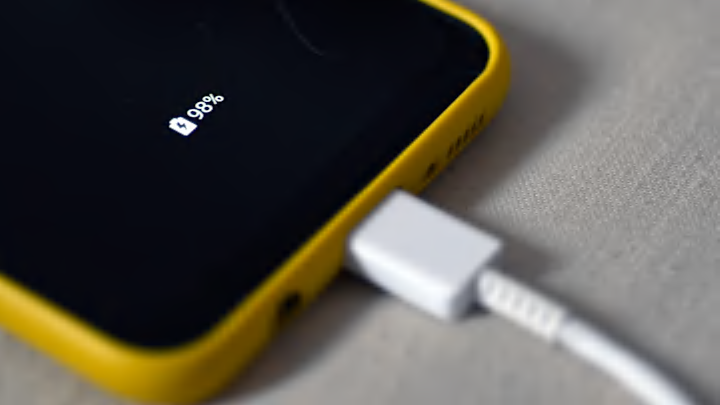Grabbing a phone or laptop charger to unplug it can sometimes come with a mild surprise. The charger can be warm or even hot to the touch, inviting questions over whether powering up your electronics can be creating a fire hazard. So why do chargers get so hot? And is it dangerous?
According to How-To Geek, phone chargers turn AC, or alternating current, into DC, or direct current, via a transformer. It’s normal for a transformer to heat up as it operates, creating a warm surface on the charger.
The key word is “warm.“ If it’s hot, that’s unusual, and it could be for any number of reasons. If you’re using an aftermarket charger, it could be poorly made and malfunctioning, in which case you should switch to a genuine part. Or, the problem could be with the connection, either from the charger to the outlet or the charger to the port on your device. Make sure all of the connections are clean and free of any dirt, lint, or debris.
The problem can also be a charger incompatible with your device. Make sure whatever you’re using is approved for the model of phone or laptop you’re looking to power.
You can also check to see the charger is in an area where it can best dissipate heat. Having it resting in an open space is ideal; having it idling on top of a bed comforter is going to force it to retain more heat.
In most cases, a warm charger is nothing to be concerned about. But if a charger exhibits excessive or unusual heat, a strange smell, discoloring, or a fraying cable, you should discontinue use immediately and seek a new part.
Can it start a fire? Possibly. Though rare, the lithium ion batteries used in phones and laptops can catch fire, which is why you shouldn’t leave a device unattended and charging overnight if the charger is prone to overheating.
[h/t How-To Geek]
